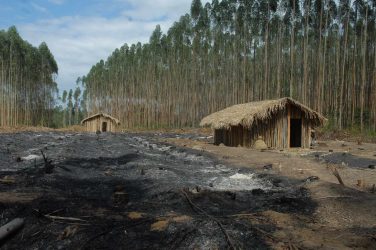 Brazil’s economy could grow 2.5% in 2018 and expand at an even faster rate over the following years, the Brazilian Finance Minister, Henrique Meirelles, said at a seminar in Shanghai.
Brazil’s economy could grow 2.5% in 2018 and expand at an even faster rate over the following years, the Brazilian Finance Minister, Henrique Meirelles, said at a seminar in Shanghai.
There are US$ 269 billion in investment opportunities mapped out in Brazil for the next four years, Meirelles added, which would help the economy recover from the severe recession is has been going through since 2014.
“The historical trend is for Brazil to have substantially faster growth rates and we will work to have growth back to an average of 4%,” Meirelles said.
The minister attended the seminar along with President Michel Temer in the framework of the G20 summit in China.

The investment opportunities in Brazil include concessions of public services and the privatization of state companies, Meirelles said, adding that some of the projects will be detailed later this month by the government.
The Senate dismissed President Dilma Rousseff last week, clearing the way for Temer, interim president since May, to push fiscal reforms and privatizations.
But Temer’s business-friendly agenda faces an uphill battle in Congress in an electoral year, his economic advisers and senior lawmakers have admitted.
Brazil is holding next month municipal elections, after two rough years with the worst recession in seventy years and when there has been a clear erosion of the political system standing for a disenchanted and divided public opinion.
G20 Summit
After his return from China, Meirelles described Brazil’s participation in the G20 summit as a success, adding that investment in Brazil sounds like a great idea overseas. Meirelles was a member o President Michel Temer’s entourage in Hangzhou, where the gathering took place.
“Much interest has been raised in investing in Brazil. That is indeed a promising piece of information, as it shows that everyone believes in Brazil’s recovery and everyone’s ready to consider the idea of investing here. Some countries even plan to further trade negotiations. In short, everything went very well,” he pointed out.
According to the minister, the Brazilian entourage introduced the main topics supported by the country both the international field—like climate and fair dealings in commercial relations. “We also explained what the situation facing Brazil today is like and what we have done, as well as what we’re proposing: to recover Brazil’s economy. Our participation was very important,” he said.
Everyone attending the meetings in China showed interest in what is going on in Brazil, Meirelles reported. “It went very well, and everybody was very interested in understanding exactly what the situation is and what is happening in the Brazilian economy today,” he stated.
The G20 summit focused on building an innovative, collaborative, and inclusive global economy. During the opening ceremony, Chinese President Xi Jinping argued that G20 should change from being a discussion forum to an active mechanism.
Car Sales
Car sales in domestic market increased by 1.4% in August, compared with the previous month. A total of 183,900 units were sold, indicating that growth pace has slowed compared with July, when business increased 5.6%.
From January to August, a decrease of 11.3% was posted compared with the same period in 2015. Compared with August last year, the drop stood at 23.1%.
Data were released by the National Association of Auto Manufacturers (ANFAVEA), representing carmakers in the country.
Data also indicate that the industry reduced revenue last month compared with July 2016, reaching US$ 923.8 million (down 1.9%).
Production also fell 6.4%, or 177,700 units. From January to August, production declined 18.4% and on August 2015, 20.1%.
ANFAVEA’s President, Antonio Megale, pointed out that as the country’s political scenario was defined, it is now “time to move on.” He defended structural reforms, noting that the pension deficit issue is “a time bomb”. For the businessman, the country also has to develop the issue of infrastructure to become more competitive with external market.
According to Megale, the automobile industry has achieved good results in trade agreements with foreign countries, and we must “enjoy this moment and take a turn to compete with the world.”
The Brazilian central bank said that future interest rate cuts will not depend on any single factor, signaling that policymakers are ready to ease monetary policy as inflation expectations improve. In the minutes of its last rate-setting meeting, the bank said all members were satisfied with the progress of disinflation, but remained cautious about high inflation expectations for 2017.
Last week, the bank kept its benchmark Selic rate steady at 14.25% for the ninth straight time in a bid to lower inflation that is near 9%. The central bank then listed conditions for a rate cut, including the persistence of food price shocks, uncertainty around fiscal adjustment measures and a pick-up in disinflation.
The bank also removed previous references to a lack of room to cut rates, as well as a mention to lower private inflation expectations before any changes in policy.
Some analysts, however, interpreted the minutes as signaling that the bank could wait a bit longer to cut interest rates if some of the conditions are not met.
“It is not because some of these factors are materializing that the bank will cut rates. The bank has to be certain that inflation will converge to 4.5% before any cut,” said Alessandra Ribeiro, economist and partner with consultancy Tendências.
Brazil’s president, Michel Temer, has vowed tough economic reforms to rebalance the public accounts and help the central bank slash some of the world’s highest interest rates.
Mercopress/ABr









